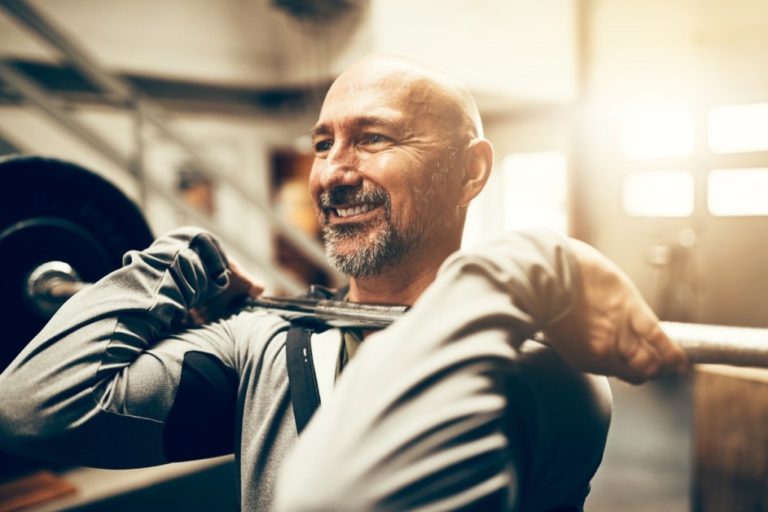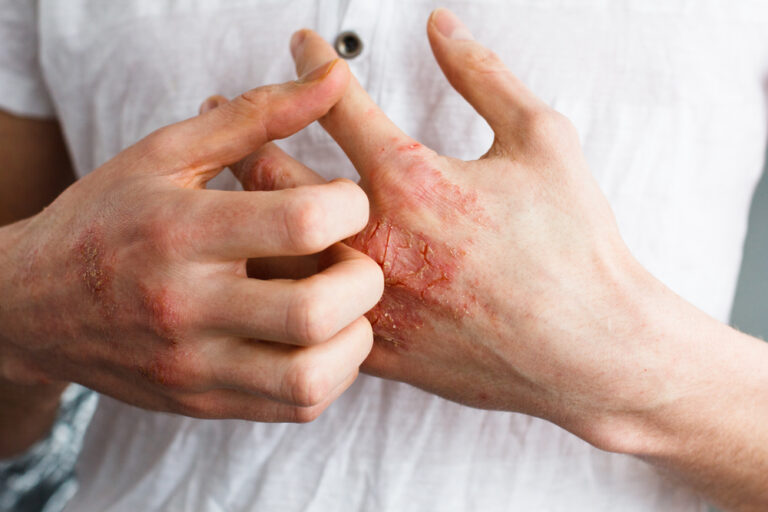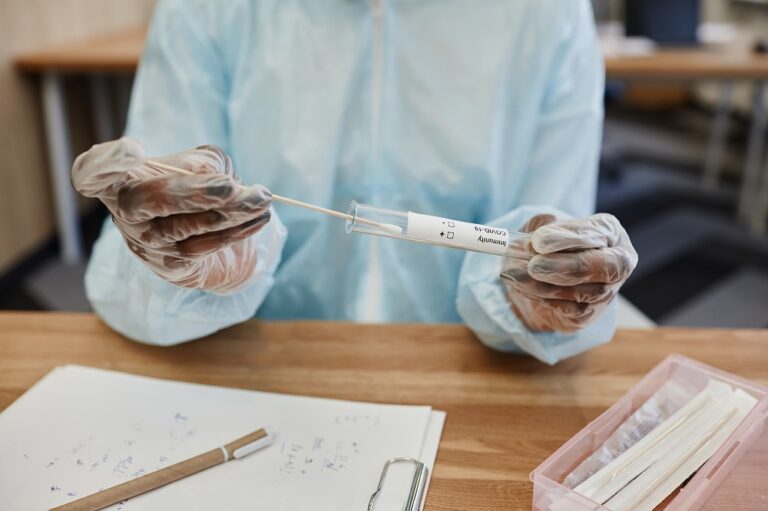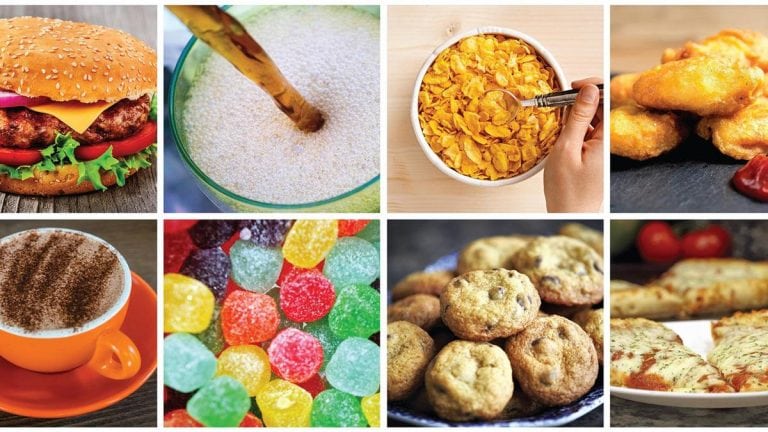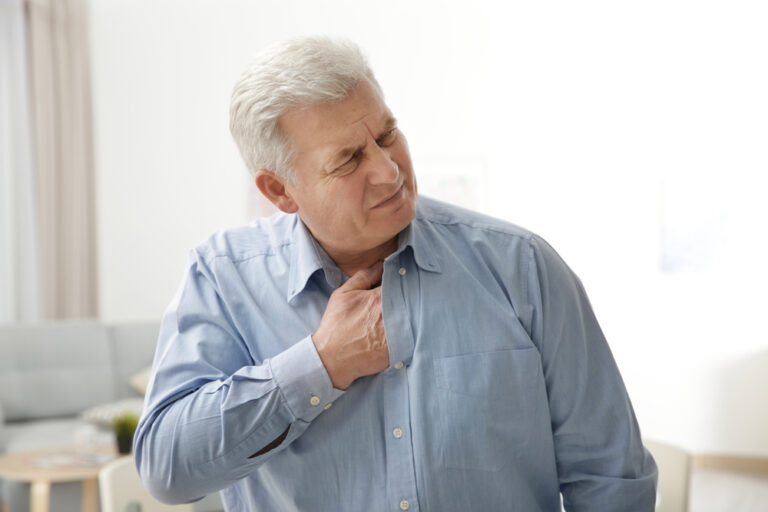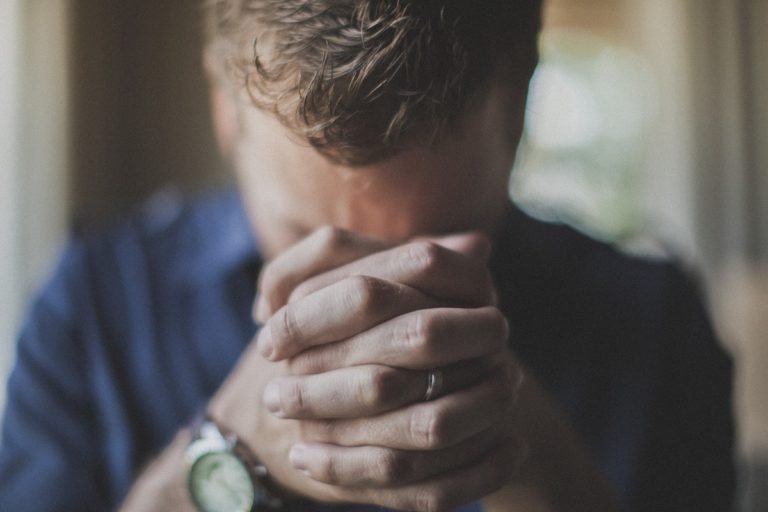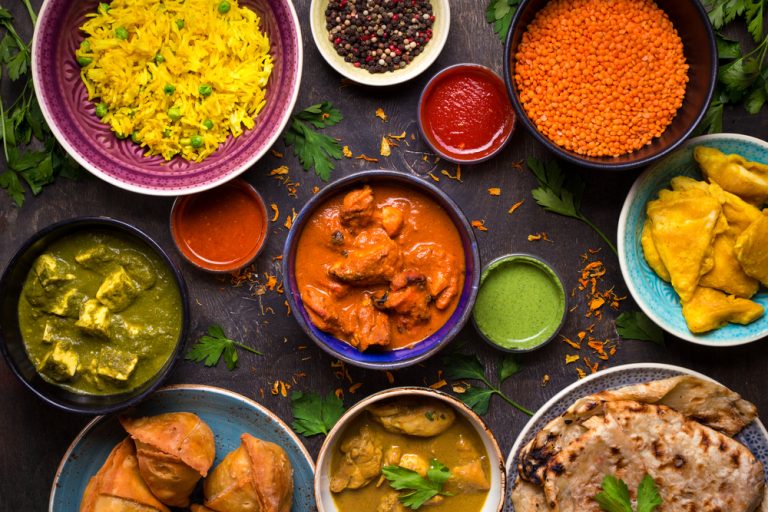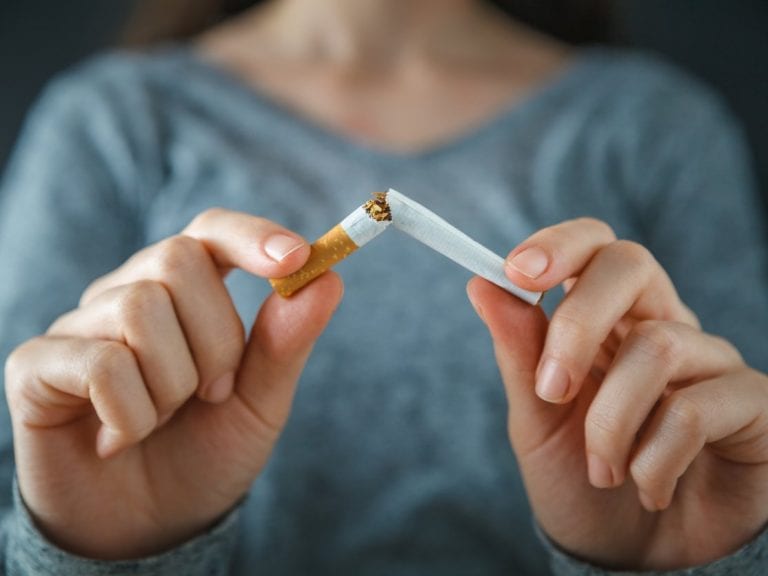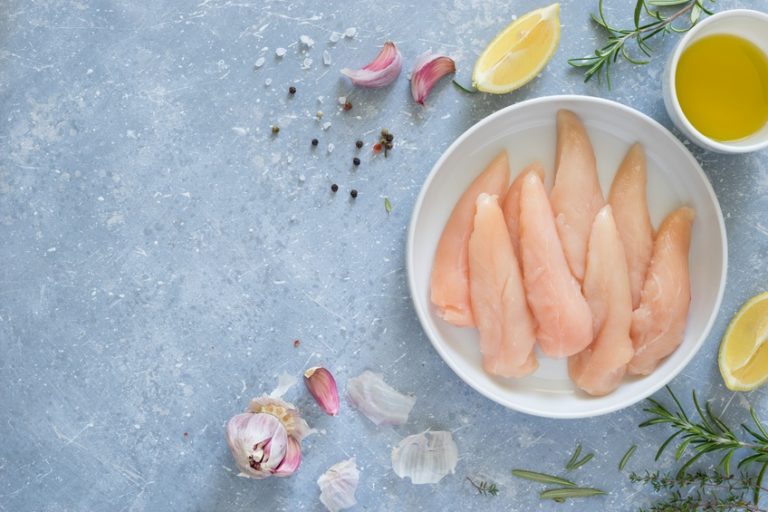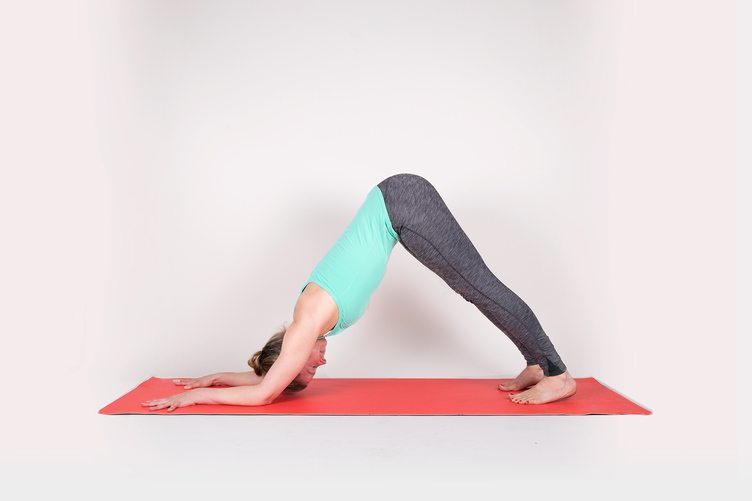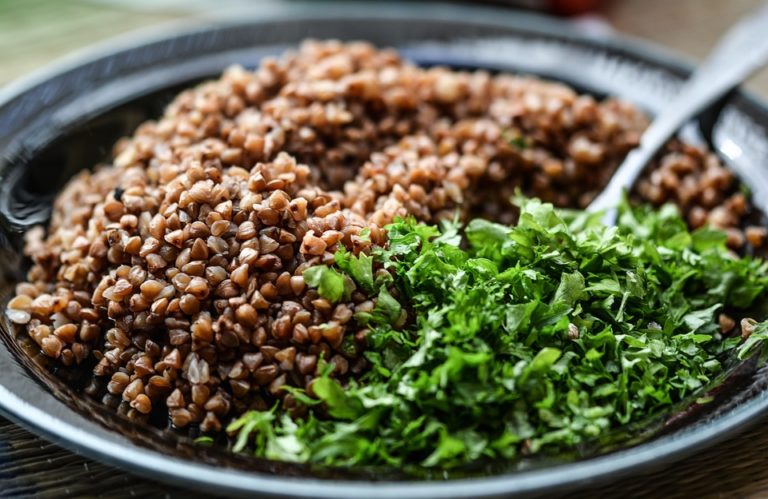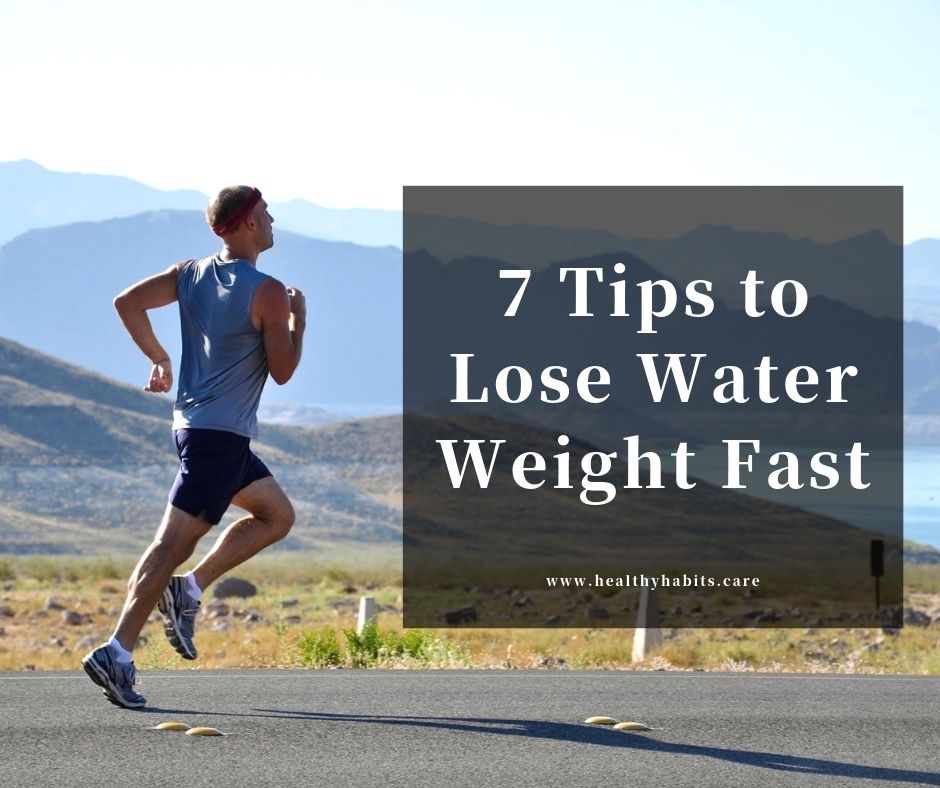
Bloating seems to sneak up on you when you planned to wear your snug jeans or a sleek dress. That uncomfortable “it’s hard to button my pants” feeling may be a product of a gastrointestinal problem (thanks, gas), but it can also be caused by a temporary increase in water weight.
“We all have weight fluctuations. That’s completely natural for your body. There are many factors that can make you retain water,” says Lauren Harris-Pincus, M.S., R.D.N., author of The Protein-Packed Breakfast Club.
The biggest culprit for bloating and retaining water is too much salt. Your kidneys regulate how much water your body maintains or excretes. Consume a high-sodium meal and “your kidneys will hold back water to dilute that high salt level,” Harris-Pincus explains.
Hormonal changes during your menstrual cycle can create puffiness, too. In one Canadian study, women reported that fluid retention peaked on the first day of their period, so you may notice a predictable pattern in bloating around the same time each month.
Whatever the cause, it’s natural to want to debloat. After all, it can be a very uncomfortable state. You want to button up your pants again and slip on your rings without a struggle. Giving your body time to flush out excess fluid is the only “cure” you really need, but when you want to speed up the process, these 7 tricks can help.
Get moving
A little exercise can clear your mind, make your muscles feel great, and—as a debloating bonus—flush out water weight. Sweating gets rid of water in your body, as well as electrolytes like sodium, Harris-Pincus says.
Eat fewer processed foods
Eating too much salt is the most likely culprit for excess water weight, so it’s smart to limit the amount in your diet. Three-quarters of your salt intake comes from processed and restaurant foods, so you’ll naturally lower your consumption to a healthy amount by eating fresh meals made from whole foods prepped at home.
Consider limiting higher-salt healthy foods too
Even well-intentioned eaters may pack in extra sodium without realizing it. A few nutritious foods are low in calories but rich in salt. Soups and pickles are serious sodium culprits. Sandwiches can stack up the milligrams too. Try to limit these in your diet or look for smarter low-sodium options.
Pack in potassium
“Sodium and potassium are two minerals that balance each other,” Harris-Pincus says. Potassium also helps regulate your blood pressure.
Unfortunately, you’re likely running low on the mineral—it’s one shortfall nutrient people don’t get enough of. Upping your intake of fruits and vegetables will go a long way. In general, eating more of any variety you like will help. Otherwise, focus on a few potassium-rich picks, like coconut water, broccoli, sweet potatoes, pumpkin, oranges, dried fruit like prunes and raisins, and dark leafy greens, she recommends.
Add magnesium
Magnesium is another electrolyte that helps regulate fluid balance in your body, Harris-Pincus says. Leafy greens, avocado, almonds and beans are particularly good choices. Besides, “these are foods we need to eat more of anyway,” she adds. That’s a win-win.
Drink more water
While it seems counterintuitive, Harris-Pincus says, you don’t want to fall into a dehydrated state—or worse, do so on purpose.
“Consuming water will help dilute sodium levels in your body,” she says. While everyone’s hydration levels differ, the Institute of Medicine recommends women and men consume 2.7 and 3.7 liters of water, respectively, from foods and beverages every day.
Limit carbs
While a balanced diet is the best approach (and eating sources of nutritious complex carbohydrates is a cornerstone of that), it’s a reality that going on a lower-carb diet will cause your body to let go of some water weight.
“Eating carbs does not make you retain water,” Harris-Pincus says. However, she explains that for each gram of carbohydrate you store as glycogen, your body also retains about 3 grams of water. In general, your body does a great job of keeping this in balance. But when you go low-carb or low-cal, you’ll also use up the glycogen—and with that will go water.
Harris-Pincus estimates that this will be at most 4 pounds, so don’t expect that this strategy will cause a huge slim-down. That said, it’s one reason people lose more weight in the beginning while dieting.



